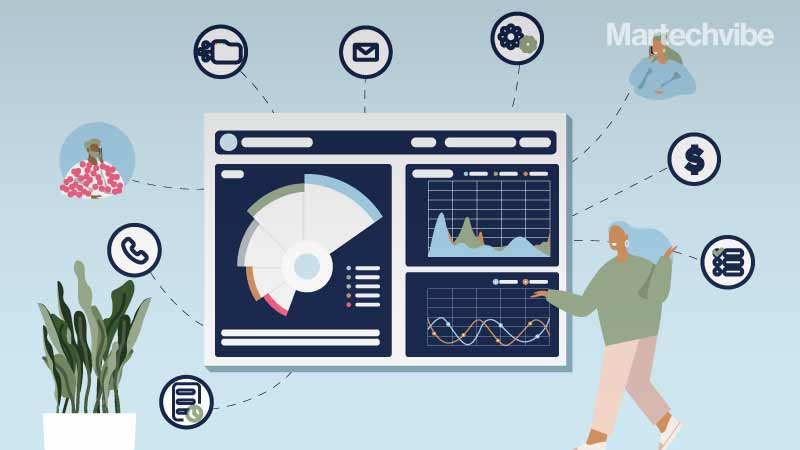CRM Trends To Watch out for
Delivering the best services or products isn’t enough to skyrocket your business. CRM (Customer Relationship Management) solutions have become a competitive and growing space. Since customer experience is what all brands have been talking about, CRM solutions and strategies and the importance of launching companies forward are immense. So, it won’t be a stretch to […]
Topics
What to Read Next

Delivering the best services or products isn’t enough to skyrocket your business. CRM (Customer Relationship Management) solutions have become a competitive and growing space. Since customer experience is what all brands have been talking about, CRM solutions and strategies and the importance of launching companies forward are immense. So, it won’t be a stretch to say that CRM is a holistic business solution and adds value.
We’ve listed out the top CRM trends you should know
Mobile CRM
Over the last two years, the pandemic has highlighted the importance of accessibility. To accommodate the increase in remote workers, brands have had to reassess their business operations and strategies.
According to Expatica, 83 per cent of UAE respondents pick online banking platforms and smartphone applications for their convenience, round-the-clock availability and security. Besides, around 90 per cent of all UAE residents now bank online.
Liv, Neo, First Abu Dhabi Bank, Emirates NBD, Mashreq, Dubai Islamic Bank, HSBC, Citibank and Standard Chartered provide mobile banking services in the UAE.
There’s a possibility of increasing CRM systems and apps that work fairly across a host of platforms, operating systems, and screen sizes. Companies should lookout for CRM strategies that allow consumers to work in offline and online environments.
Although there are many benefits of Mobile CRM, security will have to be a top priority, as oftentimes CRM deals with protected and sensitive data, and mobile solutions are easily hackable.
AI + Automations
According to recent reports by Salesforce, marketers using artificial intelligence (AI) increased, from 29 per cent in 2019 to 84 per cent in 2020. Brands can look forward to CRM platforms that provide the power of AI in analytics. This technology feeds predictive analytics, enhancing CRM software capabilities to provide forecasts from the data it collects.
Advanced conversational tools that can help consumers shop and get service will be key in 2022.
Another facet of AI and automation is its critical role in predictive analysis. Better AI-driven automation tools to gather unexpected data can benefit brands to keep track of the changing consumer behaviour and predict their future buying trends easily.
AI and automation will continue to be major trendsetters for consumer segmentation. It will allow organisations to make better-targeting sales and marketing campaigns. Businesses can then spend more time on those customers who are more likely to make a purchase.
Additionally, chatbots are a great AI for CRM catalogue. It can help answer consumer doubts and drive sales.
Also Read: How Does CRM Differ From Marketing Automation?
Voice Technology
Paypal uses voice assistant support that allows customers to send and receive request money using voice commands. Voice technology is predicted to create a bigger impact on CRM systems. While brands can earn a lot of money through having voice recognition capabilities on the site and application, it can also be used for better data tracking. In fact, as per Statista, by 2024, the number of digital voice assistants will reach 8.4 billion units. With direct access to voice technology, CRM brands can provide their customers with relevant insights to help enhance CX.
Also Read: IoT in the Middle East: Embracing the Technology
IoT Integration
Personalisation is a popular segment of CX that increases lead generation. Using IoT can further enhance the experience. A game-changing technology, Disney World embedded RFID (Radio-frequency identification) technology in its MagicBand bracelet (a radio-powered bracelet) for guests. While the visitors enjoy the rides and take pictures with Mickey Mouse and Shrek, Disney tracks their data through the bracelets. The data helps them add personalised experiences such as birthday surprises, opening their hotel room door at the Disney resorts, visiting the park, and even paying for their breakfast with the band.
According to IoT analytics 2020, there were 11.7 billion connected IoT devices in 2020, and it’s expected to touch 30. 9 billion by 2025. Smart IoT devices can be the gold mine for customer insights.
CX is the King
Salesforce reported that 84 per cent of customers state that experience is key. CRM technology holds great power to fulfil consumer expectations. It is predicted by experts that future CRM systems will grow more to simplify the use, access and analysis. This, in return, will cause modified and personalised customer service, which will develop a better customer experience. It will be within reach to deliver data that responds to the customers’ needs and directs them into the marketing funnel.
Augmented and Virtual Reality
From IKEA to Major League Baseball, brands are allowing AR/VR features on their platform. However, few brands like Taco Bell and Netflix have also tried AR for product marketing. While it’s one of the biggest trends hitting experiential marketing, integration of AR/VR with CRM can give companies a distinct edge. For instance, several retailers have started using smart mirrors, and furniture stores allow consumers to use VR in browsing and “trying out” products.
AR and VR integration with CRM platforms gives companies more advanced devices for sales and marketing campaigns. These tools highly influence the user experience and can mean the difference in conversion success.









































































































